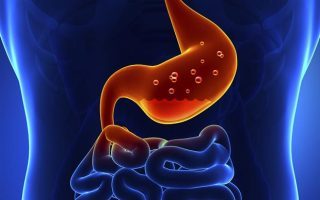- Home
- Editorial
- News
- Practice Guidelines
- Anesthesiology Guidelines
- Cancer Guidelines
- Cardiac Sciences Guidelines
- Critical Care Guidelines
- Dentistry Guidelines
- Dermatology Guidelines
- Diabetes and Endo Guidelines
- Diagnostics Guidelines
- ENT Guidelines
- Featured Practice Guidelines
- Gastroenterology Guidelines
- Geriatrics Guidelines
- Medicine Guidelines
- Nephrology Guidelines
- Neurosciences Guidelines
- Obs and Gynae Guidelines
- Ophthalmology Guidelines
- Orthopaedics Guidelines
- Paediatrics Guidelines
- Psychiatry Guidelines
- Pulmonology Guidelines
- Radiology Guidelines
- Surgery Guidelines
- Urology Guidelines
No need to worry! PPI use safe even in long term, says journal Gastroenterology

Delhi: A recent study has put to rest all the concerns regarding the use of proton pump inhibitors (PPI).
The study, published in the journal Gastroenterology, has found that the proton pump inhibitors (PPI) use is not associated with any adverse events when used for 3 years. However, it did increase the risk of enteric infections. PPIs are used for the treatment of acid-related disorders.
There have always been concerns surrounding the use of PPIs. Some recent studies have shown it to be associated with an increased risk of serious adverse events in the long-term including pneumonia, hip fracture, dementia, enteric infections (including Clostridium difficile), cerebrovascular events, chronic renal failure, diabetes, chronic obstructive pulmonary disease (COPD), and mortality.
Also Read: Warning! PPI use linked to premature death from CVD, cancer: BMJ
Paul Moayyedi, The Population Health Research Institute, McMaster University and Hamilton Health Sciences, Hamilton, ON, and colleagues aimed to confirm these findings in an adequately powered randomized trial.
For the purpose, they compared the safety of proton pump inhibitors(PPI) use (pantoprazole 40 mg once daily) with placebo in 17,600 patients aged ≥65 years with stable coronary or peripheral artery disease (78% men; 23% smokers).
In a large prospective, randomized, controlled study, the safety of proton pump inhibitors(PPI)use (pantoprazole 40 mg once daily) was compared with placebo in 17,600 patients aged ≥65 years with stable coronary or peripheral artery disease (78% men; 23% smokers).
Participants were also randomly assigned to groups that received rivaroxaban (2.5 mg twice daily) with aspirin (100 mg once daily), rivaroxaban (5 mg twice daily), or aspirin (100 mg) alone. they then collected data on the development of pneumonia, Clostridium difficile infection, other enteric infections, fractures, gastric atrophy, chronic kidney disease, diabetes, chronic obstructive lung disease, dementia, cardiovascular disease, cancer, hospitalizations, and all-cause mortality every 6 months. During a median follow-up of 3 years, results were as follows:
- There were no significant differences in rates of pneumonia, fracture, new diagnoses of diabetes mellitus, chronic kidney disease, dementia, COPD, gastric atrophy, cancer overall, and cancers of specific primary sites between the pantoprazole and placebo groups.
- There was an increased rate of enteric infections other than C. difficile in patients on pantoprazole (1.4% vs. 1.0%).
- For all other safety outcomes, proportions were similar between groups except for C difficile infection, which was approximately twice as common in the pantoprazole vs the placebo group, although there were only 13 events, so this difference was not statistically significant.
Also Read: PPIs induce Neutropenia and thrombocytopenia: a case report
"These data substantiate the excellent safety profile of PPIs except for a small increase in enteric infections and cast doubt on findings of serious adverse events in recent observational studies," write the authors.
"Although physicians must always carefully consider the risks and benefits of all prescribed medicines and only use the recommended doses and duration of treatment, these high-quality, long-term safety data should reassure both physicians and their patients needing PPIs," they concluded.
To read the complete study log on to https://doi.org/10.1053/j.gastro.2019.05.056

Disclaimer: This site is primarily intended for healthcare professionals. Any content/information on this website does not replace the advice of medical and/or health professionals and should not be construed as medical/diagnostic advice/endorsement or prescription. Use of this site is subject to our terms of use, privacy policy, advertisement policy. © 2020 Minerva Medical Treatment Pvt Ltd